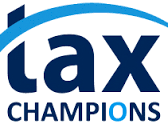Fresh Start Initiative
Many taxpayers have gone through financial struggles that made it difficult to pay their federal taxes in a timely manner. The IRS designed the Fresh Start Initiative to help these taxpayers.
Penalties and interest are promptly assessed after the tax deadline passes. They accrue daily until the whole balance is paid. This causes the debt to grow exponentially, therefore making it more difficult to pay.
The IRS offers effective programs for taxpayers who wish to become compliant with the IRS tax code. Some of these programs include penalty abatements, offers in compromise, installment agreements and more. Although all of these offer significant relief, some of them aren’t suitable for all taxpayers. Many experts recommend hiring a tax professional to help determine which option will return the most favorable results.
The Fresh Start Initiative was developed to help taxpayers resolve their back-tax debt in 2011.
Later, the initiative was expanded to help even more people resolve their tax debt.
Fresh Start Initiative Expansion
The Fresh Start Initiative is a series of relief programs that addresses tax debt via different angles. These can include offers in compromise, installment agreements and penalty abatements. They counteract inconvenient collection efforts, such as tax liens, wage garnishments and bank levies while transitioning the taxpayer into compliance with the IRS.
The expansion of the previously successful Fresh Start Initiative allows more individual and business taxpayers to qualify for these helpful programs.
Changes to Tax Liens in the Fresh Start Initiative
A tax lien on a property requires that the back-tax debt be paid before a new loan is taken out on the property.
This is not only applicable to a taxpayer who wants to sell their property, but also the taxpayer who wants to refinance.
Before the expansion of this program, the IRS had the option of imposing a lien on a taxpayer’s property at their discretion.
After the expansion, the IRS reserves this collection action for taxpayers who owe $10,000 or more.
In addition, the taxpayer may request that the IRS remove the lien after the debt is paid down to below $10,000.
This is not without risk, however. If the taxpayer defaults on the remainder of the debt, the lien will likely be imposed again later.
Another lien relief option offered with the expansion makes its removal possible for even more taxpayers.
You may choose to have a negotiated portion of your paycheck withheld and sent to the IRS through a Direct Debt Installment Agreement.
This installment option allows the taxpayer to request immediate removal of the lien from their property, regardless of the amount of their tax debt.
The expansion gives a taxpayer affordable options for settling back-tax debt while also allowing him or her to sell or refinance their asset.
It also allows him or her to retain the proceeds of the sale or refinance. Before the expansion, the IRS would require these proceeds to pay the balance of the debt if they agreed to remove the lien.
Penalty Abatements are Part of the Fresh Start Initiative
Did you know that penalties can be up to 40 percent of the total back-tax debt you owe?
While this significant number is alarming for many taxpayers, relief is available in several cases.
Receiving a penalty abatement on your debt means the IRS removes or reduces the penalty, making tax debt resolution more attainable.
Penalty abatements may be applied to numerous penalties, including the Failure-to-File penalty, which is for filing your tax return after the deadline and the Failure-to-Pay penalty, which is for paying your tax after the deadline, and more.
The IRS suggests that you may qualify for a penalty abatement if the following are true:
- You didn’t previously have to file a return, or you have no penalties for the three tax years prior to the tax year in which you received a penalty.
- All currently required returns were on time or you filed an extension of time to file.
- You have paid or arranged to pay any tax due.
In addition, they note the following qualifications for a First Time Abatement:
- You didn’t previously have to file a return or have no penalties for the three tax years prior to the tax year in which you received a penalty.
- All currently required returns were on time or you filed an extension of time to file.
- You have paid or arranged to pay any tax due.
The Fresh Start Initiative Includes Installment Agreements
Paying back-tax debt in monthly installments isn’t a new concept for tax relief, however, it remains a vital part of the approval process for tax liens and penalty abatements.
Taxpayers must file all previous tax returns before asking the IRS for tax relief.
The IRS will consider the terms of an installment agreement after they get a clear picture of the total tax owed.
There are several installment agreements that the IRS will consider. Many of these are much easier to qualify for after the Fresh Start Initiative expansion.
In addition, the expansion extended the term length for installments from five years to six years. The change makes monthly payments more affordable for many taxpayers.
It’s also common for the IRS to require financial documents. These often include assets, income and expenses to determine the monthly payment amount.
The IRS does not consider subsequent payment plans for taxes owed in future years, so be sure to remain up to date on your taxes throughout the duration of the installment agreement. In addition, it’s critical to maintain timely monthly payments until the debt is paid.
The IRS offers the following tips for managing an installment agreement with favorable results:
- Pay at least your minimum monthly payment when it’s due.
- File all required tax returns on time and pay all taxes in-full and on time. Contact the IRS if you’re unable to do so.
- Your future refunds will be applied to your tax debt until it is paid in full.
- Make all scheduled payments even if we apply your refund to your account balance.
- When paying by check, include your name, address, SSN, daytime phone number, tax year and return type on your payment.
- Inform the IRS if you move and provide your updated address.
Offer in Compromise Expansion
Another part of the Fresh Start Initiative expansion regards the Offer in Compromise program.
This program allows taxpayers to settle their debt for less than they owe in special cases.
The expansion doesn’t only allow access for more taxpayers with financial hardships and other special cases. It also makes the process simpler to utilize.
The new application process is simpler to navigate, as well as qualify for.
The IRS cautions, however, “You are not eligible if you are in an open bankruptcy proceeding.” To confirm that there are no other concerns with your personal eligibility for the Offer in Compromise program, you may consult with a reputable tax relief professional. The IRS also offers a tool called the Offer in Compromise Pre-Qualifier.
Constructing a successful offer in compromise requires an important framework. It needs to express why you need the settlement in your own words. Supporting documentation and other information should also be included.
The Offer in Compromise application should also include two payments; one for the proposed first payment of the offer, and the other for the $186 non-refundable application fee.
The IRS won’t return the payment intended for the offer if it’s rejected. Instead, they apply it the balance of your debt.
Instead, the revenue agent will apply it to the balance of your back-tax debt.
Professional Help to Reduce Tax Debt
When considering a request for any component of the Fresh Start Initiative, a revenue agent scrutinizes the taxpayer’s financial information. The agent will determine his or her ability to pay the debt within a reasonable time period.
The IRS accepts proposals for an Offer in Compromise based on a taxpayer’s financial health. They examine assets, income and expenses. This aids them in determining if the offer you’re proposing is likely to be the biggest fraction of the debt they they’re likely to collect in a reasonable period of time. A tax professional can help you accurately illustrate your financial hardship for the IRS. This increases the likelihood of a successful outcome.
At Tax Champions, we’ve been negotiating with the IRS for over 35 years. We’ve never received a complaint with the Board of Accountancy nor the IRS. Our A+ rating at the Better Business Bureau can attest to our clients’ satisfaction with our results over the decades.
We invite you to contact us for a free consultation with no obligation to hire our firm. We’re available during day and evening hours, every day of the week for your convenience. Our staff will discuss your options and the best path to the most favorable results in your circumstances.
You can reach us at 800.518.8964 or send us your contact information in the blue box on the right side of this page; one of our knowledgeable staff will reach out to you.
Sleep better tonight knowing that your tax matter is in the competent hands of a reputable and experienced tax relief professional. Call or click today.
Sources
[1] Offer in Compromise. (2019, July 10). Retrieved from //www.irs.gov/payments/offer-in-compromise
[2] Payment Plans Installment Agreements: Internal Revenue Service. (2019, July 18). Retrieved from //www.irs.gov/payments/payment-plans-installment-agreements
[3] Penalty Relief Due to First Time Penalty Abatement or other Administrative Waiver. (2019, March 21). Retrieved from //www.irs.gov/businesses/small-businesses-self-employed/penalty-relief-due-to-first-time-penalty-abatement-or-other-administrative-waiver
[4] Penalty Relief Due to First Time Penalty Abatement or other Administrative Waiver. (2019, March 21). Retrieved from //www.irs.gov/businesses/small-businesses-self-employed/penalty-relief-due-to-first-time-penalty-abatement-or-other-administrative-waiver
[5] Understanding a Federal Tax Lien. (2019, May 30). Retrieved from //www.irs.gov/businesses/small-businesses-self-employed/understanding-a-federal-tax-lien

